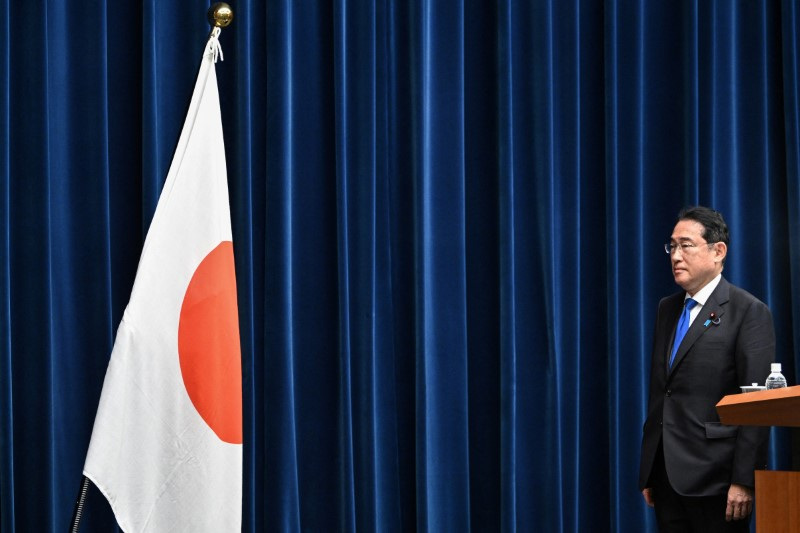Fumio Kishida pledged reform as he announced his resignation as prime minister, following a term overshadowed by controversy.
Earlier this month, Fumio Kishida announced his decision to step down as Japan’s prime minister and not seek re-election as leader of the Liberal Democratic Party (LDP). While the timing of his announcement was sudden, it wasn’t entirely surprising.
Kishida, who assumed office in October 2021, faced significant challenges, including record-low approval ratings due to rising living costs and ongoing corruption scandals within the LDP. Despite most Japanese prime ministers serving only a year or two, Kishida’s three-year term ranks as the eighth longest in Japan’s post-war history. Nonetheless, his tenure was marred by controversy, leading him to view his departure as an opportunity for renewal.
“I made this difficult decision with the public in mind, driven by a strong resolve to advance political reform,” Kishida stated to reporters on August 14.
The nature and scope of the promised reform will become clearer next month when the LDP elects its new leader. This leadership contest will not only determine Japan’s next prime minister but could also set the course for the party and Japanese politics for years to come.
Kishida emphasized the need for “transparent and open elections and free and vigorous debate” to demonstrate that the LDP is evolving and becoming a “new LDP.”
The party has been embroiled in a corruption scandal involving undeclared campaign funds, which has weakened its traditional power structures and intensified calls for change. Rintaro Nishimura from the Asia Group notes that this has set the stage for a leadership contest between the old guard and a younger generation.
“There’s a desire within the party for a fresh face,” Nishimura said. “Not just someone new in charge, but someone who can convincingly show the public that the LDP is changing. This race is shaping up to be a generational battle between older and younger candidates.”
Kishida, elected LDP president in September 2021 and winning a general election shortly thereafter, had notable achievements on the international stage. He improved relations with South Korea, strengthened ties with NATO, and deepened U.S.-Japan relations amid rising tensions over Taiwan. Kishida also increased Japan’s defense budget and supported Ukraine during the Russian invasion.
However, domestic issues proved more problematic. The LDP faced turmoil following the assassination of former Prime Minister Shinzo Abe in July 2022, which revealed ties between Abe’s killer and the controversial Unification Church. Kishida’s response included seeking a court order to revoke the church’s tax-exempt status and urging party members to sever ties with it.
Further eroding public trust, in November 2023, it was revealed that a conservative faction within the LDP had failed to report over 600 million yen in campaign funds, leading to legal actions against several lawmakers. Kishida attempted reforms by tightening political donation laws but faced criticism for not doing enough.
Political factions, a key element of the LDP, have also come under scrutiny. Many view them as opaque and accountable for recent scandals. In response, Kishida disbanded his faction and encouraged other factions to do the same.
This factional collapse has created uncertainty around the upcoming leadership race. Starting September 12, candidates will campaign for 15 days, a longer period than usual to enhance transparency. The election, scheduled for September 27, will be followed by a run-off if no candidate secures a majority in the first round. The winner, backed by the LDP and its coalition partner Komeito, will become Japan’s new prime minister.
Aisawa, the LDP election committee chief, emphasized the need for frugality and responsiveness to public criticism in the campaign. Nishimura highlighted the importance of the election in shaping the party’s future and its prospects in next year’s general election.
Former Economic Security Minister Takayuki Kobayashi was the first to announce his candidacy, followed by former LDP Secretary-General Shigeru Ishiba and Digital Transformation Minister Taro Kono. About a dozen candidates are expected to run, reflecting a high level of competition reminiscent of an American primary.
With factions weakened, younger candidates like Kobayashi and Environment Minister Shinjiro Koizumi, both in their 40s, have a rare opportunity to compete. Nishimura sees this as a chance for younger members to step up and make a difference, though Mikitaka Masuyama warns that even if a younger or female candidate wins, they will face substantial challenges in implementing change.
Three prominent female candidates, including former Gender Equality Minister Seiko Noda and current Foreign Minister Yoko Kamikawa, are also in the race. While the prospect of Japan’s first female prime minister is intriguing, analysts caution that even a historic election result may not necessarily translate into significant political change.










